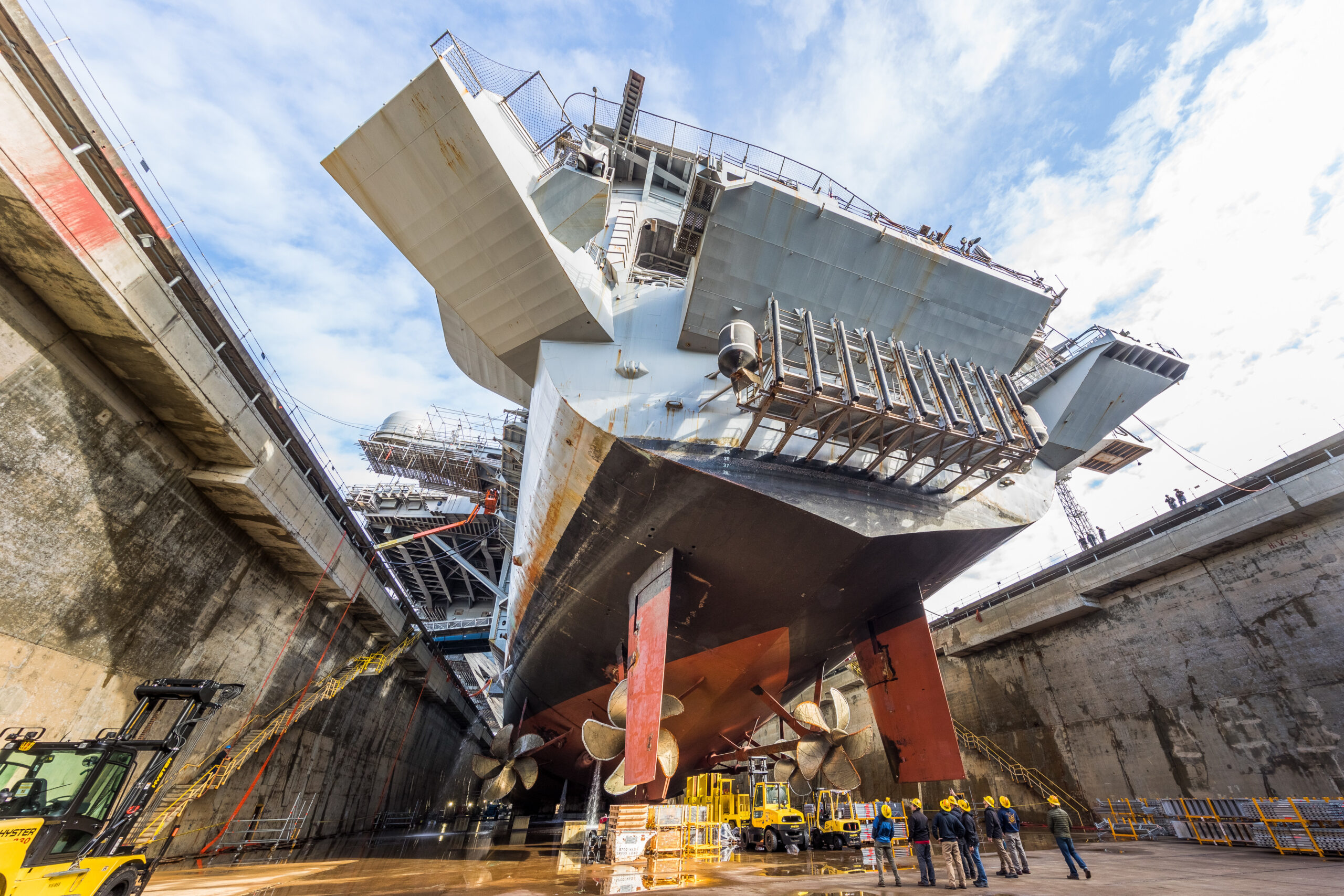IBEW members working in American shipyards could benefit from a shift in trade policy that targets China’s global shipbuilding domination.
The domestic maritime industry has been hit hard by foreign players in recent decades. To boost the industry, the U.S. is considering hiking fees on Chinese vessels docking at U.S. ports.
IBEW Government Affairs Director Dean Warsh testified at a public hearing before the U.S. trade representative on March 24. He talked about the importance of reinvigorating the maritime industry after decades of job losses due to outsourcing.
“Reviving domestic shipbuilding capacity is essential to maintaining a ready and resilient defense industrial base,” Warsh said. “Investing in domestic shipbuilding strengthens our ability to respond to national security threats while protecting middle-class jobs.”
Today, the U.S.builds only a fraction of the ships that it produced in the 1980s. The IBEW and five other unions filed a petition to investigate whether China’s anticompetitive practices were responsible. In January, the U.S. trade representative’s office confirmed China had eroded America’s capacity to produce commercial and military vessels.
“The longer the U.S. shipbuilding industry languishes, the more the U.S. loses in maritime expertise and the further the country falls behind in the cutting-edge ship construction technologies used by our competitors,” Warsh testified.
In a joint statement, the House Select Committee on the Strategic Competition Between the United States and the Chinese Communist Party said the People’s Republic of China controls over 50 percent of the world’s shipbuilding, while the U.S. accounts for just 0.2 percent. For every large ocean-going vessel built in America each year, the PRC builds 359.
“We are firmly committed to working on a bipartisan basis to hold the CCP accountable for its unfair maritime practices and to revitalize our domestic shipbuilding industry and workforce, restoring America’s identity as the preeminent commercial maritime power for the 21st century,” said committee leaders John Moolenaar (R-MI) and Raja Krishnamoorthi (D-IL).
Warsh agrees. The IBEW supports requiring a greater share of U.S. goods, like liquified natural gas and crude oil, to be transported on U.S.-built, U.S.-flagged ships, he said.
IBEW members are employed by Electric Boat in Connecticut and Ingalls Shipbuilding in Mississippi and at U.S. naval shipyards in Virginia, Maine, Washington and Hawaii. They contribute to international commerce and are essential to building, maintaining, and modernizing the vessels that secure the country’s defense, like naval submarines and aircraft carriers.
Photo caption: Bremerton, Wash., Local 574 workers at the Puget Sound Naval Shipyard and Intermediate Maintenance Facility

